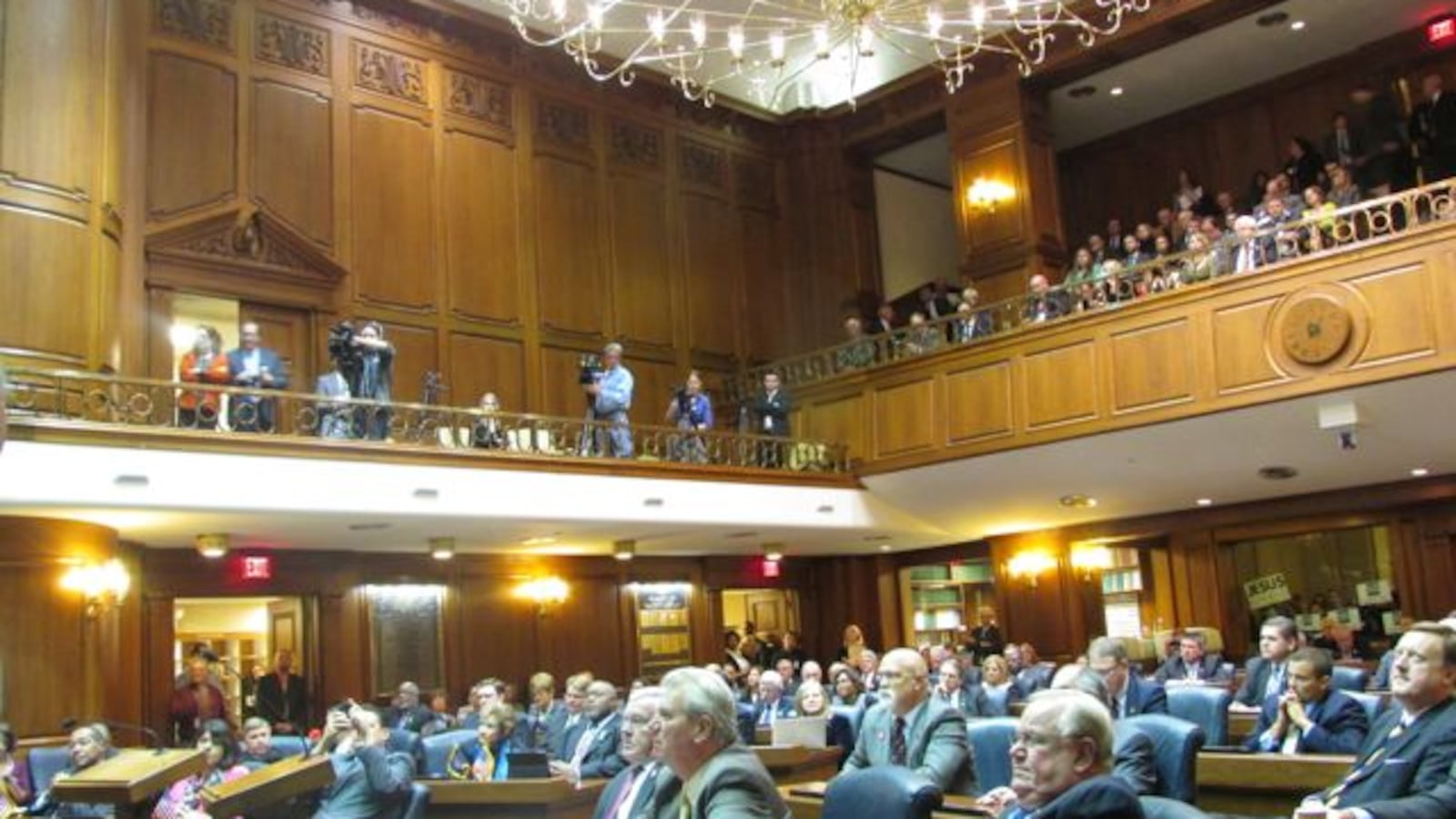One Republican lawmaker has a question for her colleagues who are moving quickly toward a one-year “pause” of any teacher or school consequences for low 2015 ISTEP scores: Should the delay instead be for two years?
Authored by Senate Education Committee Chairman Dennis Kruse, R-Auburn, Senate Bill 200 quickly passed committee 10-1 today as part of an effort to have it signed into law by Gov. Mike Pence as early as mid-month. The bill would prevent any school’s A-F grade for 2015 from dropping below the grade it received in 2014.
But Sen. Jean Leising, R-Oldenburg, argued today that a one-year pause wouldn’t give teachers and students enough time to acclimate to new tests and new standards.
So far, nobody appears to be listening.
Her bill, Senate Bill 139, was assigned to the Senate Rules Committee this morning, not the education committee, which she said basically killed it. The bill would have extended the effort to hold schools and teachers harmless for both 2015 and 2016 scores. Kruse’s bill gives schools a pass just for 2015.
Skip Brown, spokesman for Senate President David Long, R-Fort Wayne, said the General Assembly’s plan was to stick with Kruse’s bill based on discussions with among Republicans, Democrats and Ritz’s and Pence’s teams.
“All of those stakeholders reached agreement on the approach contained in SB 200 over a variety of other options,” Brown said in an email. “So that is the bill that is moving forward.”
Leising’s view aligns with groups that are pushing to reduce the influence of testing in education such as the Indiana Coalition for Public Education.
Joel Hand, testifying for the coalition, pointed to expert testimony last summer that suggested most states delay longer when changing standards and redesigning state exams.
Test expert Greg Cizek from the University of North Carolina told lawmakers over the summer that many states commonly give a longer pause when the put in place new standards and transition to new tests. Indiana junked Common Core standards for its locally created standards back in 2014. A new ISTEP, created to match the new standards, was given in 2015. But the new test was riddled with scoring and design problems.
“The most defensible practice that most states follow when they do that is a phase-in process,” Cizek said in the summer. “We change standards now, but new tests would not responsible for them until about three years.”
Leising pushed the same logic.
She said she would champion a longer pause to boost teacher morale and because she feared communities she represented might be hurt if business shied away from locating there because they believed the schools were failing, she said.
“We‘ve got to make sure that we are not somehow missing the boat as we push testing,” she said. “I’m not opposed to accountability, but I think we have to use some common sense.”
State Superintendent Glenda Ritz has backed Kruse’s bill and wasn’t concrete about whether she’d support a longer delay — but she didn’t rule it out.
Kruse’s bill was just one of the session’s biggest education bills to make it through committee already, and other groups that generally are skeptical of test-based accountability appeared resigned to Kruse’s plan as the most viable option.
“We’re here supporting this one-year pause,” said Gail Zeheralis, a lobbyist for the Indiana State Teachers Association. “But, you know, we’ll see what the future holds.”
A bill similar to Kruse’s also sailed out of the House Education Committee today.
House Bill 1003, authored by committee Chairman Robert Behning, R-Indianapolis, would remove the sting of lower ISTEP scores and school A-F grades from teacher’s yearly ratings. It passed the committee unanimously today, 12-0, and next heads to the full House.
Behning’s bill would allow schools and districts to use the higher of 2014 or 2015 scores in determining performance bonuses. In the most recent two-year state budget passed last year, legislators set aside $30 million in 2016 and $40 million in 2017 for teacher performance grants.

